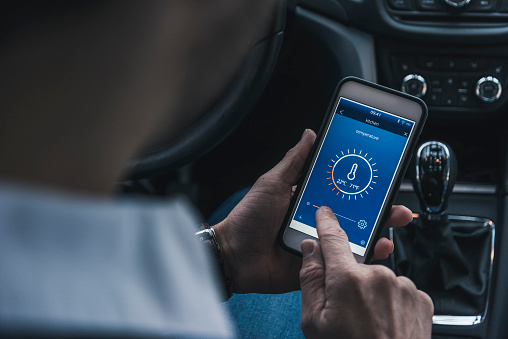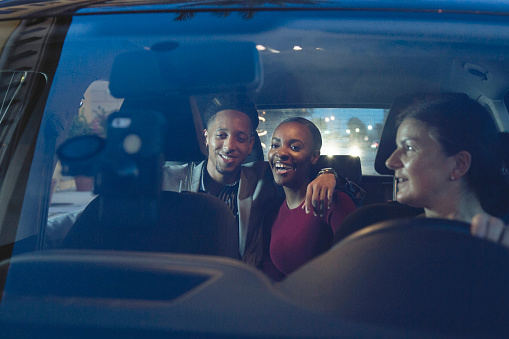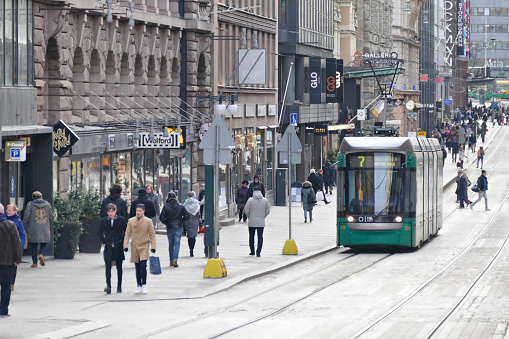When you think about the future, whether you picture hoverboards or self-flying drone taxis — chances are you’re envisioning mobility at work. Technological advances in mobility have the potential to change nearly everything we know about the way we live our life, which is why Audi is hosting its annual MQ! Innovation Summit later this year in Ingolstadt, Germany where they will bring top futurists from around the globe to help establish an MQ, or mobility quotient — a scientific standard of measuring mobility.
As luminaries such as Cory Doctorow, Steve Wozniak and Andra Keay prepare to descend on Ingolstadt for MQ!, we partnered with Audi to explore how mobility might evolve in the future, and to find answers to all the questions you might have about mobility–but may have never thought to ask.
What is mobility?
Mobility refers to the movement of people, goods, data and society in our everyday lives. A couchsurfing intern who ends up as the successful CEO is an example of social mobility. Self-driving cars, bikesharing and your city’s bus system are mobility at work, too. Futurists study mobility to understand where we’re headed as a society as technology changes how we commute, plan cities, establish hierarchies of power, climb the social ladder and secure our assets. Mobility can refer to a broad range of topics–from refugees to robots.

Robots?! How do they figure into this?
Robots are “absolutely” a mobility issue, according to Andra Keay, the managing director of Silicon Valley Robotics. “[For example,] every new car is a robot, but we just call them cars,” she said in a statement. “The automotive industry has already become a robotics industry, and it will soon be an integrated part of our everyday life.”
Will it change soon?
In many ways, shifts in mobility have already begun, but futurists say that a major leap in connectivity will occur with the international rollout of the 5G network. Futurists are excited about 5G because of its potential to share data hundreds of times faster than what’s currently possible. This is especially crucial in connecting us into the Internet of Things, whether it’s connecting a smartphone to a dog’s collar, or self-driving cars to one another.
Dr. James Canton, the CEO and Chairman of the Institute for Global Futures in San Francisco, says 5G will be integral to the development of smart cities. “Think about a city like a business,” he says. “You have a stack of different services, and these services right now are disconnected from one another so there’s a waste of energy.”
Canton says that by 2022 we’ll start to see 5G’s potential fulfilled in some cities, such as accelerating smart highways, self-driving cars, automated environments, immersive entertainment, security and emergency services.
How are auto manufacturers anticipating this change?
Mobility’s advances will affect nearly every area of the auto industry: auto workers, dealerships, oil companies, the auto insurance sector, public and private parking sectors, toll infrastructure, accident rates, and traffic enforcement.
The auto industry is also watching millennials’ preferences closely, and as this generation (the oldest of who are nearing 40) grows into the workforce, starts families and enters the spending economy, trends show that they’re less interested in owning cars than they are in the lived experience.

“[Millenials] tend to regard cars as more functional,” says Andrew Curry, director of the futures practice at Kantar Consulting in London. “There are always outliers, but as a general set of values, millennials would rather be embedded in the latest tech than the latest car.”
Auto companies have also set up research outposts in Silicon Valley to study technological advancements and adapt to mobility’s changes. For example, the Volkswagen Group’s Electronic Research Laboratory consists of engineers, designers, psychologists and others who look at how consumers might build trust in self-driving machines and how these changes might impact society at large.
What are some ways improved mobility might affect cities?
If the development of AI-driven cars progresses as predicted (that within the next few years, we’ll see driverless cars operating regularly), and it happens in concert with 5G’s rollout, owners of self-driving automobiles would be able to keep their car in motion throughout the day — potentially allowing others to hire it to take them where they need to go — rather than having the car sit in a parking lot for hours. This would free up the estimated 800 million parking spaces in the United States, (what the design firm Ideo estimates to be more than 10 percent of urban land) allowing cities to reuse the space.

What’s especially interesting is the concept of mobility-as-a-service (MaaS), a method of placing various forms of transportation on the same platform, which some cities are currently pilot-testing. A MaaS service in Helsinki, for example, provides bike sharing, taxi or mass transit to customers on either a pay-as-you-go or monthly subscription plan.
What are some things that industry and policy leaders need to consider if they want to maximize their potential to harness mobility?
As our connectivity improves and our ability to share data becomes more efficient, “There will be many more points of entry, resulting in a higher possibility for uncertainty,” says Amy Zalman, a global security futurist and the CEO of the Strategic Narrative Institute. “City planners must think about this: Things do go wrong. Subway [delays] happen. Trains have accidents.”
Zalman points out that when we’re all working in a connected system, there could be a slurry of consequences because of a minor glitch. “It could be compounded because there would be more systems affecting more people. What are the safety issues? What are the communication issues? How do you get things back online?”
What will the future of charging networks look like, for those of us who drive electric vehicles?
This is something Audi will discuss at the MQ! Innovation Summit through its myriad workspace presentations, because electric vehicles are seen as a near-future development and Audi engineers anticipate that charging will become more of a commodity by 2030. “We expect batteries with sufficient capacity and charging power to overcome driving range anxiety and [lack] of infrastructure,” explain Bernhard Meier and Kristin Schoof, electrical engineers at Audi.
Could mobility help save lives?
Today, auto accidents account for 1.25 million deaths globally every year. When cars drive themselves, and if they’re programmed not to exceed a speed limit, analysts predict that many deaths will be averted.
“The most important aspect of the future of mobility to me is the protection of people and the planet they live on,” Ron Garan, a retired NASA astronaut and author of “The Orbital Perspective,” said in a statement. “Through technology it is possible to reduce road fatalities to zero. We can do this by shifting the focus from solely designing vehicles that can survive a crash to vehicles that don’t crash in the first place because they know where all the other cars and hazards are and autonomously take steps to avoid danger.”
Are there downsides to these developments?
A decrease in auto deaths would significantly impact the rate of organ donations, which is already currently experiencing a shortage. Additionally, entire industries of employment will likely be displaced, such as taxi drivers.
And if self-driving cars reduce the need for parking or speeding, law enforcement will need to transition from its current reliance on citations and fees as sources of revenue.
Should we dread the future of mobility’s impending influence on our lives?
“I think that optimism and pessimism aren’t very useful ways to frame the future,” author Cory Doctorow said in a statement. “The future is arriving whether we like it or not, so our job isn’t to hope that it will be good or to despair because it will be terrible, but to do everything we can to make it better.”
How can we measure mobility? Join Audi as it seeks an answer at its landmark MQ! Innovation Summit in Ingolstadt, Germany. Luminaries such as Steve Wozniak and Cory Doctorow will explore topics in order to define the future of mobility and develop a standard as we all become better connected. To find out more and purchase tickets, visit the-mobility-quotient.com, using the code TC18 for a 20 percent discount.


































